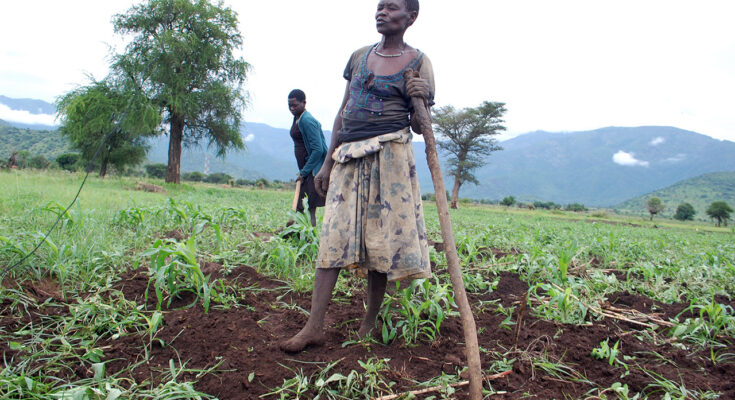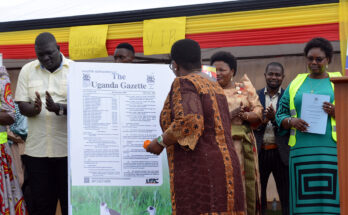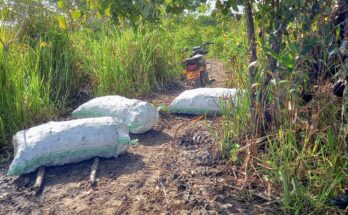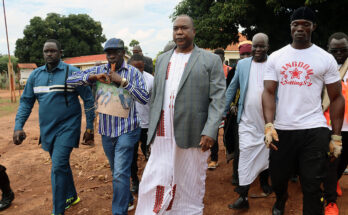When drought hit Karamoja five years ago, Alice Achuku was forced to eat one meal once a day. After a while that time, the mother of four could not take it any more, and so she was forced to migrate to Busia district, near the Uganda-Kenyan border, to look for odd jobs so that she could keep her family on her feet.
“The weather no longer likes us,” says Achuku, 34, a resident of Loregendwat, Nakapiripirti, north-east of Uganda. Yet “in the past, we planted crops easily but now our crops are drying because it is hard to tell when the rains will come. That’s why I gave up on farming.”
Further afield in Masaka district, central Uganda, Sam Ggwayambade who had almost lost hope in farming after battling harsh weather conditions switched to agroecological farming practices to ensure reliable crop harvest amid unfavourable weather conditions.
“The method is cost-effective and reliable,” said Ggwayambade who received training from a local NGO on using agro-ecology farming methods. “I am able to make my own organic manure if I want to increase soil and mulching to enhance water retention in his garden”.
The father of eight has also planted trees around his garden “to control floods because they help to soak up excess water run-offs” in case it rains heavily.
“I am also a beekeeper, thanks to these trees where I hung my hives,” he boasts, saying that he also adds value to honey by producing honey wax and bee venom to supplement his income.
As climate change wreaks havoc globally, farmers are increasingly finding it tough to grow crops with reliable harvests. Rainfall patterns have become unpredictable and temperatures are rising resulting in low crop yields. Yet more than 70 percent of people in Uganda work in agriculture – and most of them are smallholder farmers who rely on rain-fed agriculture — making them susceptible to the climate crisis.
Speaking at the side event at the COP28 in Dubai, World Bank Director for Agriculture and Food, Martien Van Nieuwkoop advised farmers to embrace eco-farming, saying that the practice not only withstands climate change impacts while producing nutritious food crops but farmers are also able to generate alternative revenue streams for their survival.
“We need to redefine the success of farmers in the 21st century. Farmers should not only produce healthy food based on suitable practices but should also provide ecosystem practices to increase their revenue streams” he said.
Nieukoop added that there is a “need for political will” to support these farmers with such initiatives, adding that the government should prioritize subsidizing farming inputs to make it easy for farmers to produce food amid the climate crisis.
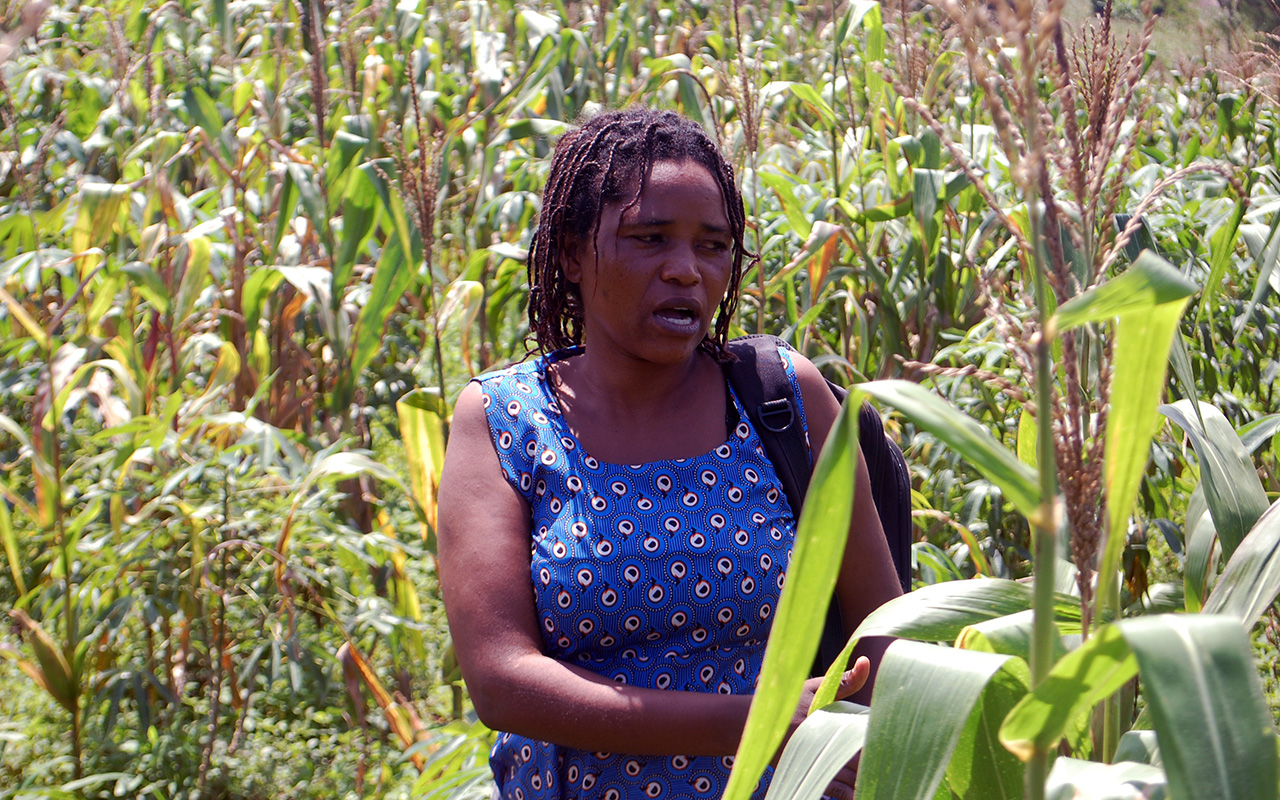
Eco-farming is an environmentally-friendly form of farming that relies on using organic material –not toxic materials — to protect the soil health while also using science-backed innovative methods such as crop rotation, mulching, agroforestry, water harvesting among others to produce food sustainably amid climate shocks.
Hakim Baliraine, National Chairperson of the Eastern and Southern Small Scale Farmer’s Forum (ESSAF) in Uganda said that eco-farming would make the garden resilient to climate shocks since it is “ a sustainable farming method that works with nature and not against it”.
“Agroecology has the power to transform food systems and make them more resilient, sustainable, and inclusive and that is why there is a need for a radical transformation of food and agriculture systems to address convergent social, economic, health, and ecological crises,” he said.
“Agroecological farming relies solely on natural processes for input and recycles nutrients on-site to eliminate the use of non-renewable resources, resulting in the development of a more sustainable and self-sufficient farming system unlike Conventional Agriculture farming systems which typically destroy the ecosystem, degrade soil quality, and eradicate biodiversity and contribute to greenhouse gasses”.
While launching the Kampala Ministerial Declaration on migration, climate change and environment, Uganda’s Prime Minister, Robinah Nabanja lauded the idea but said Uganda still needs support in climate finance from the global north, adding that at least 70 percent of resources are allocated to locally prioritised climate platforms while empowering communities.
“Uganda is mindful of degradation and its associated impacts of escalating climate change. I know that recently only 10 percent of climate finance has reached the local level. This is unacceptable,” she said.
This week at the COP28, more than 30 African countries committed to including food and agriculture in national climate plans for the first time and to scale up funding have endorsed the COP28 food and agriculture declaration.
Wanjira Maathai, Managing Director for Africa and Global Partnerships at the World Resources Institute said: “The Emirates Declaration represents a major shift in mindset. The global food system, which accounts for a third of emissions and is highly vulnerable to climate impacts, is now on the climate agenda and the countdown to action has begun. Governments must immediately include food & agriculture into national climate plans – this means concrete actions, targets, timetables and finance to get fossil fuels out of our food system, promote more diverse and nature-friendly farming, support small-scale producers and reduce methane.”
Meanwhile at the 6th East Africa Countries Agriculture Summit in May this year, farmers appealed to their home government to support eco-farming methods following concerns that many of them had failed to allocate 10 percent of their budget to the agriculture sector according to the Malabo Declaration.
This story was produced with assistance from MESHA and IDRC Eastern and Southern Africa Office for science journalists reporting on COP28.

